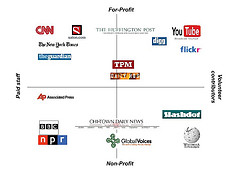On Tuesday, the Associated Press announced a change to its stylebook indicating that its writers should no longer use the term “illegal immigrant” to refer to someone living in a country illegally. The change affects more than just A.P. staffers. Many journalism outlets and independent writers depend on the Associated Press Stylebook to set the standard for terminology and punctuation ethics in the craft.
According to Jim Romenesko, senior vice president and executive editor Kathleen Carroll said that the term “illegal” “should describe only an action, such as living in or immigrating to a country illegally.”
Carroll said the decision came after extensive discussions including people “from many walks of life,” which caused them to realize their acceptance of “illegal immigrant” was imprecise and not consistent with their standards for other topics like mental health issues, which require writers to use credibly sourced diagnoses instead of labels.
“Will the new guidance make it harder for writers?” Carroll asked. “Perhaps just a bit at first. But while labels may be more facile, they are not accurate.”










